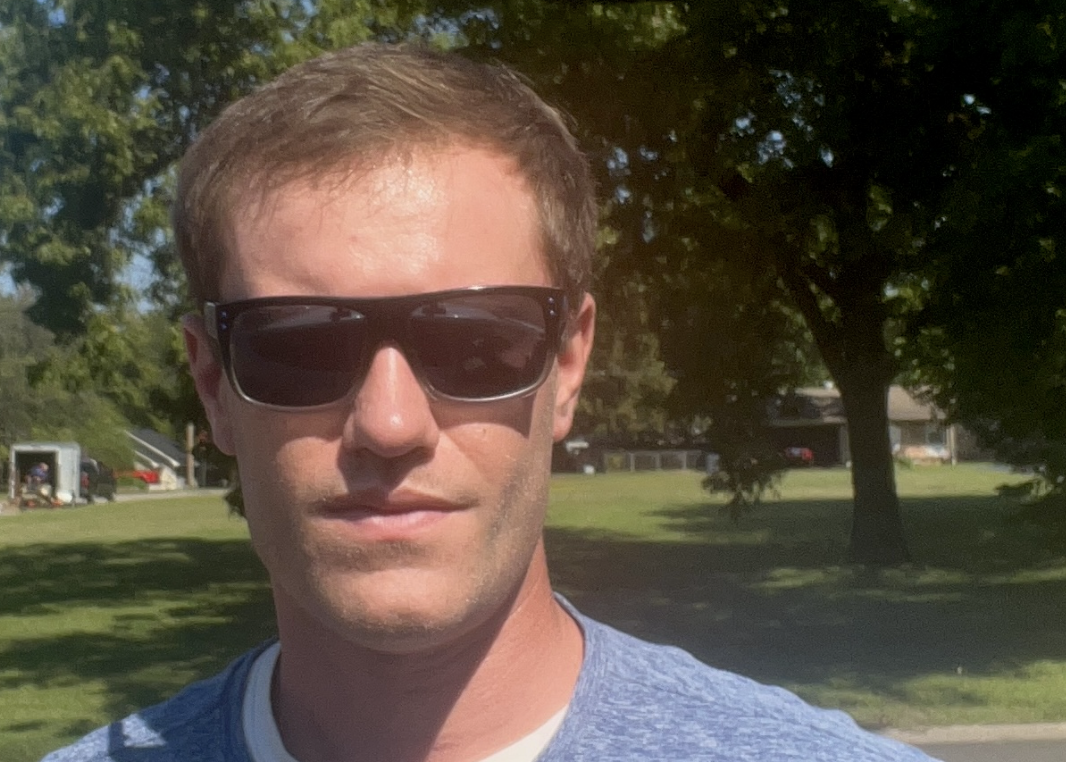"Through the Hills" by Jon Ross Anderson

Jon Ross Anderson was born in Timbo, Arkansas in a small community nestled in the Ozark Mountains, not far from the Missouri line. He's a student at Arkansas Tech University, pursuing a degree in literary studies, with the intention of continuing to write and study literature indefinitely. On weekends, summers, or anytime he's able, Jon retreats home to help on his family farm, raising feeder calves with his brother. Jon has always had a deep interest for philosophy and literature, believing these subjects to be abundant within southern culture.
Through the Hills
What followed that day was a sliver of moon and a stretch of dull unconsciousness that she could not rectify or attempt to understand. Her body and her mind felt like separate entities as they merged onto the highway headed south, the old pickup bucking slightly, flirting with the rumble strips along the white lines. He reached in the cup holder and grabbed his cigarettes. He rolled his window down and lit the cigarette, tapping the ash on the window seal and clearing his throat.
“You wanna talk about it?”
“No.”
“I ain’t gonna make you talk about it, but it might help.”
“I don’t need help,” she said.
“I know.” He put his hand on her thigh. The cigarette cowered to one corner of his mouth and hung there. “Just don’t want you getting me in no trouble.”
A feeling like vomit rested at the top of her chest, awaiting some biological cue to release. The hand was heavy and worn. She felt the muscles contract and drag across her smooth skin as the fingers twisted and rubbed. She watched the dark green oak and cedars race by her window as the truck pushed them back to dirt roads lined with families of heathens where seed passed like hands across faces and it all went one together. In the woods, out through the hills, across the river.
The truck clambered over tree roots and rocks that rose from the earth. Soon the headlights found the old trailer house, tucked behind two tall pine trees that ran into the sky like a pair of wiry legs leading to the belly of some great beast. The trailer sat on concrete blocks. The soil underneath was so badly washed by rain that most of the trailer hung in mysterious suspension.
It had been white once.
A boy down the road would bring his water pressurizer and spray it off some summers. The rust could not be bested. Eventually it consumed every inch of the structure, like a plant—something alive that fed and grew on misfortune. She started to open the truck door.
“Hold on a second.” He put another cigarette into his mouth and lit it. “What do you aim to say when she asks?”
“I’ll lie.”
“Figured as much, but what will that lie be, hon?”
She would not look at him. Her eyes were absent and fixed on the little window of the front door that glowed a nasty yellow.
“You picked me up from Beth’s when I was walking back. That’s all I aim to say.”
She left him then and started for the trailer’s door, traversing the soft dirt that remained forever moist, even through dry spells. Her shoes sank and stuck with each step and before she climbed the quasi-stairs constructed from five-gallon buckets, she looked back. She met his eyes as he jostled the gear shifter and backed into the red dirt then accelerated off. Each shift knocked and rattled in the air and soon he was gone and she was alone in the dusk of that autumn night.
“Abby James? Is that you?”
The house was dimly lit. A pungent odor of mold and trash hung in the still air. The television showed static and sang a white noise that filled the small trailer and the young boy was sitting on the decrepit couch with his legs folded under him and his hands gathered in his lap.
“Where you been at? Ma ain’t home yet. I’m hungry.”
His eyes beamed, watery and sincere. She felt incredibly insecure in his gaze. The exposure of her failed maternal instincts. A bondage of corruption and malicious desires. She felt these qualities taking root in herself. There would come a day when she would see them in him too.
“It’s alright. I’ll fix you something. Turn that television off. It’s gonna make you go blind.”
The boy scurried around the stained couch until he found the remote. The television ceased and a deafening silence replaced it. The boy continued staring at the dark box as she prepared a bowl of macaroni and used a pair of stained kitchen scissors to cut up their last slice of honey ham into a pure golden sludge.
He ate quietly and with diffidence, as if he was privy of some other lingering apparition that had arrived with the girl. A tension she could feel and was fearful of. She watched him eat. She worked hard to block the images of that day, the days before, out of her mind.
“Hey,” the boy said. “Quit looking at me like that.”
“How’s that ham?”
“Better than what Ma’d fix me.”
The girl eased herself into the dust covered chair next to the couch, slightly angled toward the television. The boy watched her and said, “What’s wrong, Abby James?”
The sound of her name coming out of the boy’s mouth felt wrong in a way she could not comprehend. She repositioned herself and sat with the silence. The boy was no longer eating. Neither of them moved. Then, finally, the girl began to cry.
And the boy cried too.